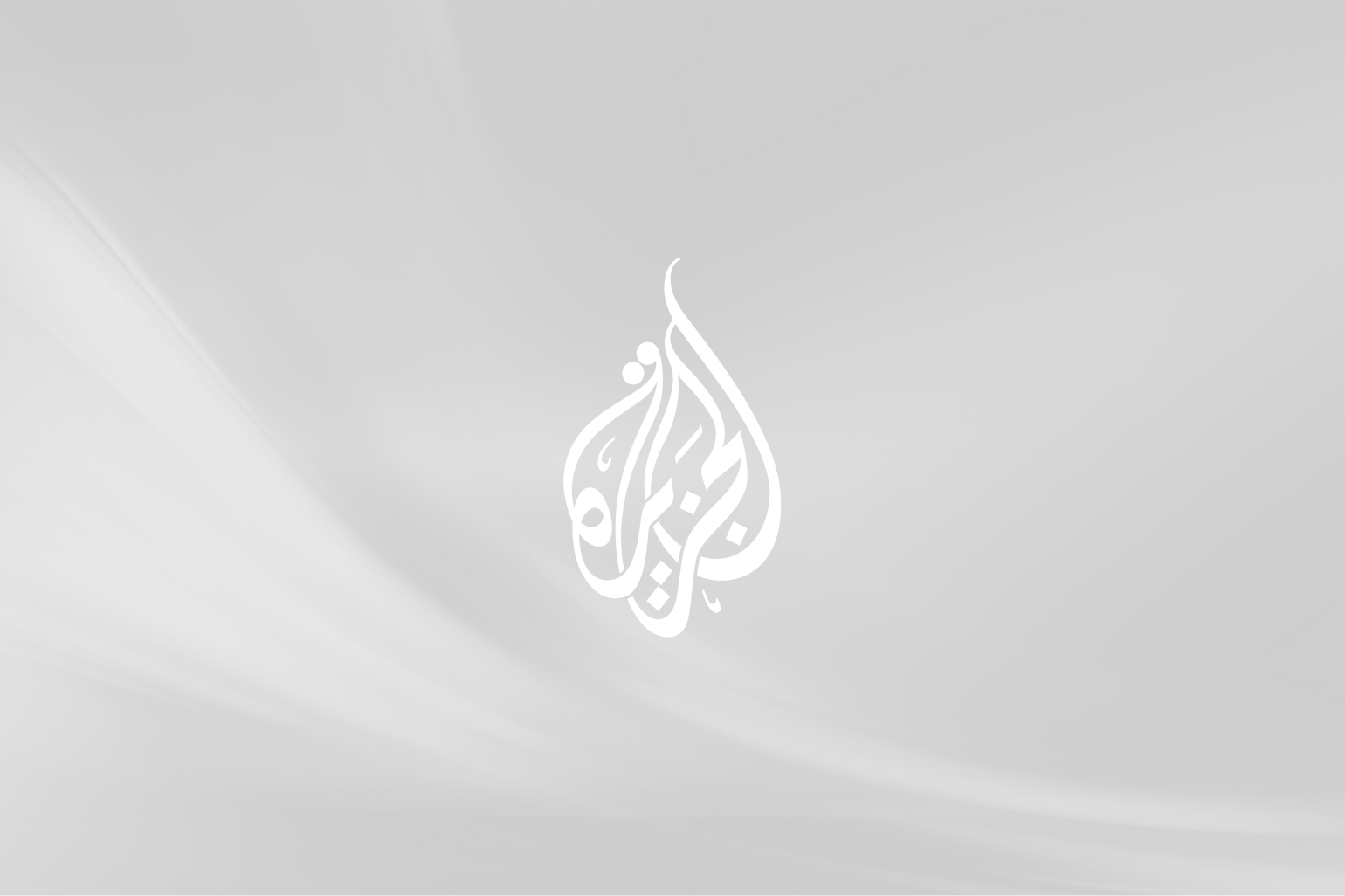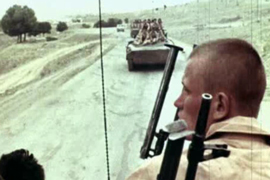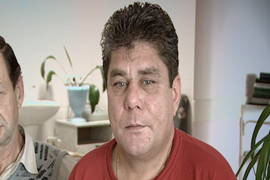
Remembering the Soviet ‘Vietnam’
Russian veterans struggle with legacy of the forgotten war in Afghanistan.
 |
| The Black Tulip memorial in Yekaterinburg is one of few tributes to victims of the war |
The Soviet Union’s decade-long war in Afghanistan in the 1980s is a conflict many in the former countries of the USSR would rather forget. As part of the special Veterans series, Al Jazeera visited the Russian cities of Moscow and Yekaterinburg and found survivors of the war who simply cannot leave the past behind.
In the suburbs of Moscow is a small museum, known by few Russians and visited by even fewer, that is dedicated to a conflict dubbed by many the Soviet “Vietnam”.
One of the few visitors is Irina Pavlovna, who has come to remember her son who died in 1982 – one of the estimated 15,000 soldiers who perished during the Soviet Union’s decade-long war in Afghanistan.
The fact Irina has to visit such a small and unassuming tribute to what was the bloc’s largest military operation since World War II is testament to the humiliation still felt today over a conflict many would rather forget.
But for the survivors it is impossible to forget such a devastating and futile conflict that many were ill-equipped to fight. Many former soldiers still bear physical and psychological scars.
| Veterans |
Responding to a request from the socialist-leaning administration in Kabul at the time, Soviet tanks began rolling into Afghanistan on December 25, 1979 to assist government troops against so-called fundamentalist rebels.
But the invasion of 80,000 troops was met with angry opposition from the Soviet Union’s cold war opponents, led by the United States, who poured money into arming mujahadin fighters to conduct guerrilla warfare.
Although Soviet forces controlled Kabul, the Afghan capital, they struggled to establish a foothold in the mountainous countryside and were the victims of regular attacks by mujahadin – who they referred to as “dukhi” – “ghosts”.
“This was not like the second world war, where there [were] two opposing sides and our fathers protected our motherland,” Sergei, one veteran of the Afghan conflict, says.
“The Afghans were peaceful and friendly to us in the daytime; but at night they turned to enemies.”
Soviet collpase
The terrain and Afghanistan’s Muslim population were entirely alien to many young conscripts from cities such as Moscow and St Petersburg. The loss of their innocence was swift.
“Our commanders told us to be humane, yet I remember one episode, when one of them aimed his machinegun at a camel and shot it,” Ahlam, another veteran, says.
“I was horrified. ‘Why did you do that?’ I asked, ‘Is this animal guilty of anything? Has it done anything wrong?’ And he said: ‘Yesterday they killed my friend.’ He completely tore apart the animal because he was mad with anger.”
As the Soviets became embroiled in the internal problems of Afghanistan and the casualties mounted, pressure increased in turn for a pullout. With its prestige in tatters, the USSR began negotiations for a withdrawal.
 |
| Many Soviet conscripts were unprepared for the conditions in Afghanistan |
That withdrawal was completed when the last Soviet soldier left Afghanistan in 1989.
With the USSR disintegrating two years later in 1991 and Russia now newly resurgent under Vladimir Putin, many in the country today have consigned the Afghan debacle to the back of their mind.
There are no national monuments to a war regarded by many as a humiliation but individual towns have chosen to commemorate those who served and died for their country.
The imposing “Black Tulip” monument in the Western Siberian town of Yekaterinburg is named after a cargo plane that carried home some of the tens of thousands of dead bodies from Afghanistan.
But many of those who returned alive are still disappointed by the lack of support they received and the isolation they felt from society.
“There was no governmental programme to help the veterans, even the invalids,” Dmitry Levin, who runs the museum dedicated to the war in Moscow, says.
“We had to survive on our own, so we started to unite. Some of us succeeded in this. Some didn’t.”
Lack of compensation
Ahlam, a former soldier from Yekaterinburg, says a list of substantial benefits for veterans was shown on the television at the time.
“It read that all veterans get an increase of 2,500 rubles in pensions, and more for invalids – 4,500 rubles,” he says.
“But when it comes to receiving the pension, they tell me: ‘You get 300 rubles. Be thankful we even give you that much!'”
| In numbers |
|
600,000 – The total number of Soviet troops believed to have taken part in the 10-year war 15,000 – The number of Soviet troops believed to have been killed in Afghanistan 1 million – An estimate of the number of Afghan fighters and civilians killed 2 – The number of years before the Soviet Union collapsed after the war |
As well as financial hardship, those returning to the USSR also had to adapt to the end of communism soon after and the advent of a free-market system.
“That sudden change was shocking for many,” Dmitry says.
“Days before our politicians were communists and here they were throwing away their party membership cards. That made us hate them.”
Despite the difficulties faced on their return, many veterans of the conflict have put their experiences behind them and adapted well to civilian life.
Valery Burkov is one. Despite losing his legs in the conflict, he is now a successful politician.
But others have deep psychological scars despite not being injured physically, and have found adapting to life after war more difficult.
Valentina Impulskaya works as a doctor in Yekaterinburg where many veterans from the region come for free, locally-funded treatment and support.
“During Soviet times, we had certainty and order. And now we have capitalism. Everyone is on his own, and in charge of himself,” she says.
“And this leads to emotional stress. People who experienced stress during battles react to these changed circumstances very keenly.”
Some of the problems the veterans experience are a direct result of battle injuries.
“Unfortunately many of the soldiers suffered cerebral contusion – that is brain damage or shell shock – as a result of mines exploding under their tanks or armoured personnel carriers,” Semen Spector, a former director of the hospital, says.
“We have discovered that a man with contusion is physically 14 years older than his real age. Psychological instability, poor memory, social problems are all caused by this.”
Drug legacy
Sergei and Ahlem are among the patients and both have suffered from alcoholism since returning while others turned to drugs for solace.
Afghanistan supplies 90 per cent of the world’s opium and drug habits acquired on the battlefield have not been easy to shrug off.
Vladimir Gaiworinok first tried heroin in Afghanistan and has used it intermittently ever since. He has contracted Aids as a result of his usage.
 |
| Ahlam has suffered from alcoholism since his return from Afghanistan |
He refuses to blame his experiences in the war for his current plight and says he learned a lot in Afghanistan but says that he thinks “it would have better for me to have been killed there… It would have been better like this.”
Viktor Bashkow, the director of the hospital, says many veterans would choose to forget the conflict if they could but they cannot.
“And in fact they shouldn’t forget their past,” he says.
“They must pass it on to their children – the knowledge that war is the worst thing.
“And that is why veterans are the best peacekeepers. They know the value of human life. Even though they might smoke or drink, the sense of justice in them is the strongest.”
Despite fading from the consciences of many people in modern Russia some veterans are determined not to forget their fallen comrades, whether it be through the regular meetings of regional Union of Afghan veterans in Yekaterinburg or the work of Dmitry Levin at his museum in Moscow.
Today, it is not the Soviet Union that is sending its young men to war but the Russian Federation. A new section has already been added to the Black Tulip memorial in Yekaterinburg.
The Cyrillic script reads simply: “Chechnya”.
Like their counterparts who fought in Afghanistan, a new generation of veterans will pay the price of a war fought for political reasons.
Soviets In Afghanistan airs from Monday March 31 at the following times: Monday 0630, 1430GMT, Tuesday 1130GMT, Wednesday 2030GMT, Thursday 0730GMT, Friday 0230, 1330GMT
To contact us click on ‘Send your feedback’ at the top of the page
Watch Al Jazeera English programmes on YouTube
Join our debates on the Your Views page

